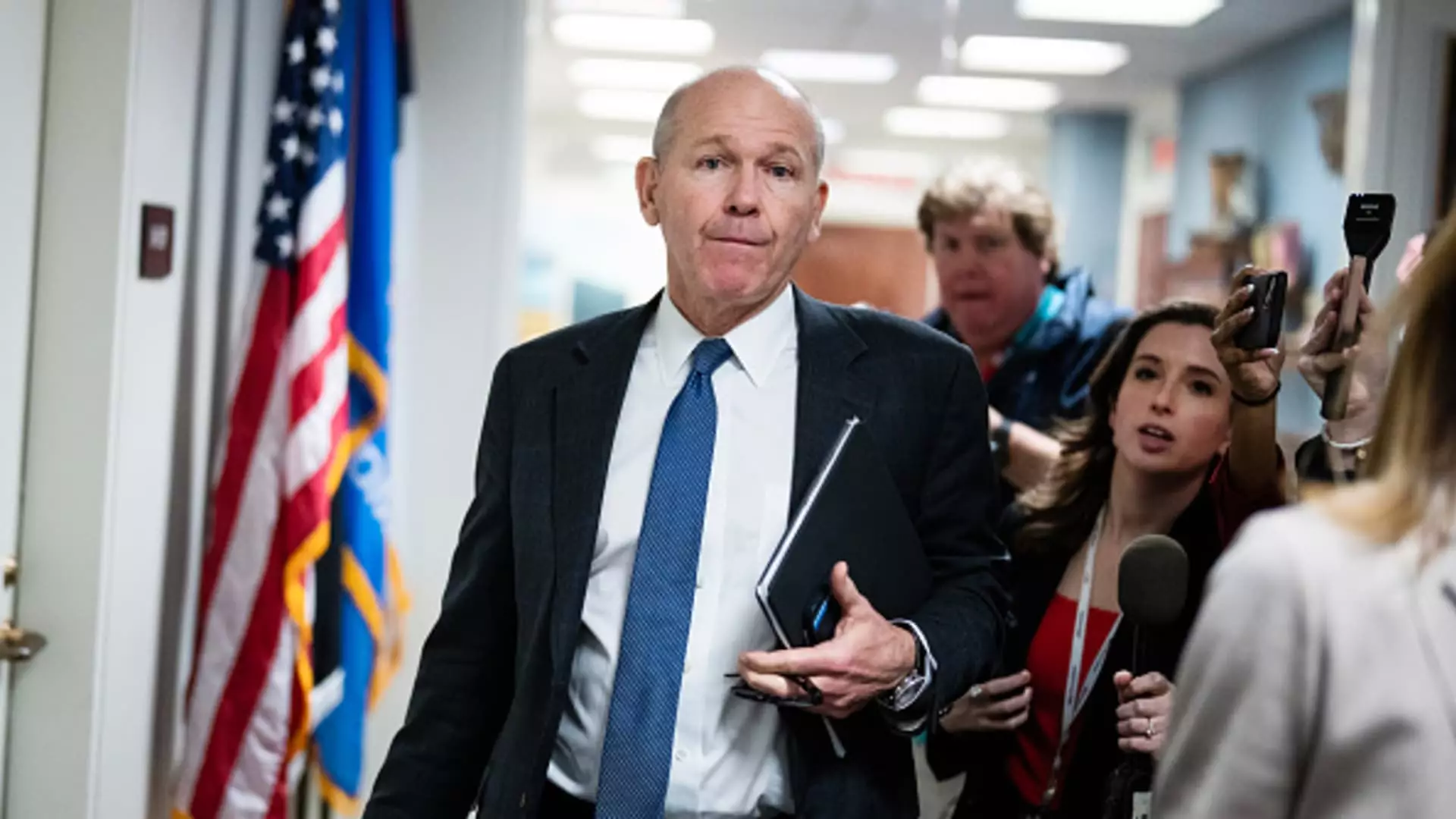Boeing CEO Dave Calhoun is set to address a Senate panel regarding the company’s less than perfect culture as new whistleblower allegations emerge just ahead of the hearing. Calhoun, who is planning to step down before the year ends, will face questioning from the Senate Permanent Subcommittee on Investigations. These allegations come as Boeing strives to enhance employee training, improve aircraft quality, and restore its tarnished safety reputation. The company has yet to name a successor for Calhoun, who took over following the ousting of its former leader due to his mishandling of two fatal Boeing crashes.
Whistleblower Claims
Whistleblower claims released by the subcommittee, including those from Sam Mohawk, a quality assurance investigator at Boeing, suggest that the company has neglected hundreds of defective parts. Mohawk alleges that parts not meeting specifications were unaccounted for and likely installed on airplanes. These concerning parts were stored at Boeing’s Renton, Washington, plant, where the popular 737 Max is manufactured. Mohawk claims he faced retaliation and was instructed by supervisors to conceal evidence from the Federal Aviation Administration. The FAA, in response, mentioned an increase in reports from Boeing staff post the door-plug incident in January.
Legal Complications
Boeing’s troubles don’t end there; the company may potentially face U.S. prosecution following the Justice Department’s statement that Boeing breached a 2021 settlement linked to the 737 Max crashes that resulted in 346 deaths. The Justice Department has until July to decide on pursuing charges against the company. The looming legal concerns have caused distress to the victims’ families who are expected to be present at the hearing.
The FAA, in a bid to ensure safety improvements, declared restrictions on Boeing’s production increase of the 737 Max. FAA Administrator Mike Whitaker emphasized that inspectors would remain at Boeing’s facilities until the regulator is satisfied with the safety enhancements. Consequently, Boeing’s production and deliveries have suffered, leading to financial strain. The company cautioned investors about a cash burn instead of cash generation this year. This setback has caused Boeing’s shares to plummet by over 30% this year.
Boeing has been grappling with quality flaws in its aircraft, prompting changes to address defects and reduce production inefficiencies. The company has been emphasizing the importance of employees reporting problems in its factories. Additionally, Boeing is facing supply chain disruptions, with major supplier Spirit AeroSystems revealing that titanium entered the supply chain with falsified documents. Despite the forged documentation, tests confirmed the material to be of aircraft-grade titanium. Boeing is also in the process of acquiring fuselage supplier Spirit, with Calhoun indicating that the deal is likely to conclude in the first half of the year.
Boeing’s ongoing challenges highlight the imperative need for the company to prioritize safety, quality, and transparency in its operations. The company’s reputation and financial stability are at stake, necessitating swift and effective resolutions to address the loopholes in its culture and production processes. As Boeing navigates through these turbulent times, transparency, accountability, and a commitment to safety will be crucial in rebuilding trust and credibility with its stakeholders and the flying public.

